‘One doesn’t have to be of certain age to change the world’
Mashal’s fellow former awardees include giants like theoretical physicist Stephen Hawking and philosopher Karl Marx
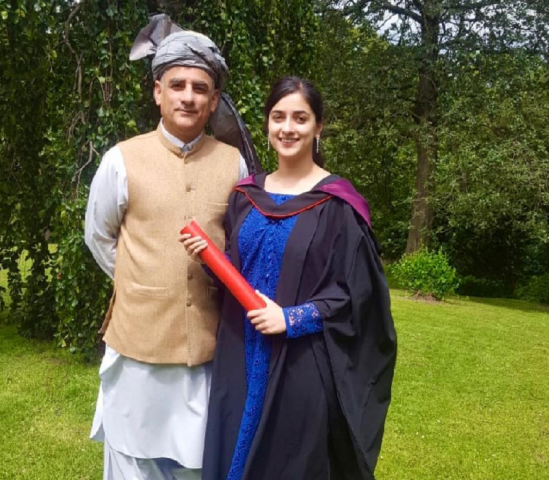
When a US court decided to tear migrant Vietnamese parents - who had lived in the country for three decades - from their four children, a letter came to their rescue challenging the verdict’s legal premises.
The order, that fell just short of dismantling and packing up a long life lived together, had the terror-stricken children of the immigrants picturing in flash-forward the precarious life they were being thrown into as they failed to meet a trivial legal condition to be with their parents.
However, the petition, written pro-bono, was accepted and the court was made to withdraw its roughshod decision. The family now lives together.
The letter was written by Pakistan-origin Mashal Aamir who is one of the eight inspirational young Pakistanis to receive the prestigious Diana Award this year.
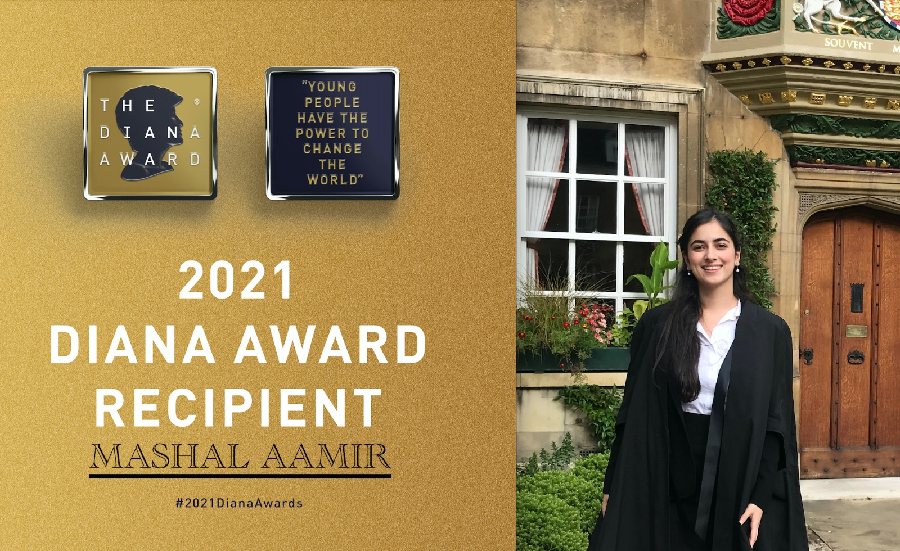
Mashal received the coveted award - considered to be a highest youth accolade - for her extraordinary humanitarian work and social service.
But this is not the only feather in Mashal's cap. The Royal Society of Art recently granted her a fellowship programme, making her part of the long honourable line of awardees which includes giants like British novelist Charles Dickens, English theoretical physicist Stephen Hawking and revolutionary philosopher Karl Marx.
In 2016, she was invited to Her Royal Highness Queen Elizabeth’s residency in Scotland where she received a Gold Award presented by the late Prince Phillip, HRH Duke of Edinburgh, himself.
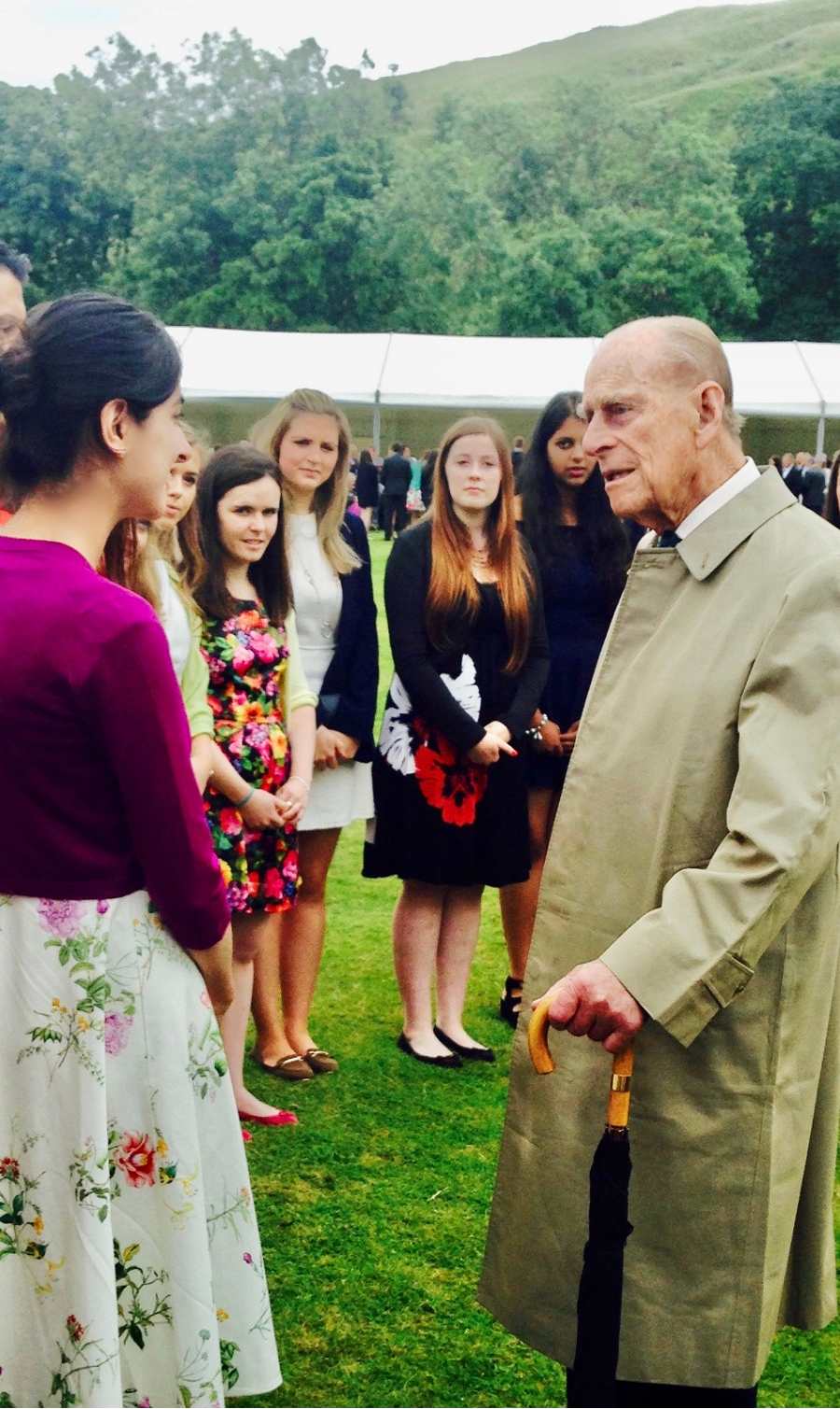
Mashal studied law with a focus on international criminal law at the University of Glasgow, University of Cambridge and University of North Carolina Chapel Hill among others. She was an associate editor of the Cambridge Human Rights Law Review and currently writes for the Cambridge Newspaper Varsity.
The Express Tribune spoke in detail with Mashal who looked back at her life's extraordinary trajectory that changed her as well as others, and shared with us her future plans.
ET: When did you realise you could make a difference as a humanitarian? What prompted you to do this? Does it take a lot of effort?
M.A: It was while undertaking pro-bono work in America that I took specialised training in immigration law in order to file a petition to prevent the imminent deportation of Vietnamese migrants who had lived in America for 30 years. My petition was successful and allowed them to remain in the country along with their four children. I couldn’t believe that merely writing one letter could stop a family from being torn apart. I was very young at the time and it made me realise one doesn’t have to be of a certain age or have certain qualifications to make an impact on somebody else’s life - you just need a genuine desire to make a sincere contribution.
I spent more than three years volunteering for Citizen’s Advice Bureau providing legal advice free of charge to help people make informed choices. What especially moved me was the sigh of relief people would take when I clarified their doubts and explained to them what rights they were entitled to and what options they could opt for.
Similarly, the Glasgow University Telephone Campaign raised nearly £3 million simply by volunteers giving their time over the phone. During my time there, I collected the highest donation for the campaign. It made significant changes for people. I also once ran into a student in complete serendipity whose whole life had been changed due to the scholarship campaign. I firmly believe even small efforts really do go a long way.
ET: In the yesteryears, women used to be skilled and excelled at handicraft which also empowered them financially. But that is now dying down in Pakistan. Do you think a revival is possible?
M.A: This is an excellent question. I definitely believe a revival is possible. It’s bound to happen. Years ago, when the colourful Pakistani buses, adorned and decorated with unique art, had started to phase out in favour of commercial cars serving as Uber, I found myself devastated. This upset me as it indicated towards erosion of our culture.
There was a clear shift in what would be emulated and preferred over native art. Foreign products and garments were preferred as opposed to what was made at home. The tag of being ‘imported’ started to carry more value.
This neglect has damaged the financial value of our unique handicraft. Ironically, during the time the truck art began to disappear and lose value at home, I happened to attend an exhibit in the UK celebrating that very unique form of artwork. Therefore, if our culture can find appreciation abroad, I think it is high time we give it the same respect too.
Besides, I am optimistic. I do see a nascent shift towards upholding and respecting cultural heritage.
ET: Apart from field work, what other methods can contribute to social causes?
M.A: Digital and print media can make tremendous changes.
Let me share a personal experience. Returning from seeing the survivors of the Army Public School terror attack, I penned down an article about them in the Glasgow University Magazine. Unbeknownst to me, the article touched hearts.
A few days later, a reader contacted me, saying my article moved her to tears and that she wished to contribute too. It was then that I realised that if a girl who had never heard of Peshawar, or the attack, can be so moved by just reading an article about it then it goes to prove that the power of the pen is really mighty.
Since then, I have always kept in mind the goal of informed awareness in my writing. Currently, I am contributing to a book on transgender rights, focusing on their treatment in Pakistan. Transgender people have always been globally an underrepresented community and highlighting their issues is essential for an environment that makes it easy for them to be heard. They deserve a platform to air their perspectives.
Besides,I have also started working on the first book about the International Criminal Court to be written from the perspective of gender-neutral judicial decision making. I will also be writing about the volatile situation in Afghanistan and victims of extreme violence.
In countries with low literacy rate, it is notable how impactful movies, documentaries, media and public service messages can potentially be. One concrete example of it would be Pakistan’s strategic information dissemination during the Covid-19 pandemic.
ET: Tell us about the award from HRH The Duke of Edinburgh.
M.A: The award I received from the Duke of Edinburgh recognised my voluntary work in educating young Pakistani children belonging from severely impoverished areas.
It was a real challenge. I was not only educating those children, I was also dealing with numerous social structures that kept them from education.
Not only did I have to encourage young girls to seek education, but I also had to persuade their fathers to allow their girls good education. It was a two-fold matter: a girl, owing to her gender, is not entitled to education, and secondly, time spent in the school is seen as a loss of income.




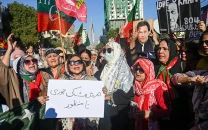
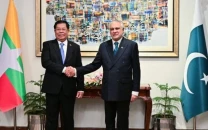












COMMENTS
Comments are moderated and generally will be posted if they are on-topic and not abusive.
For more information, please see our Comments FAQ